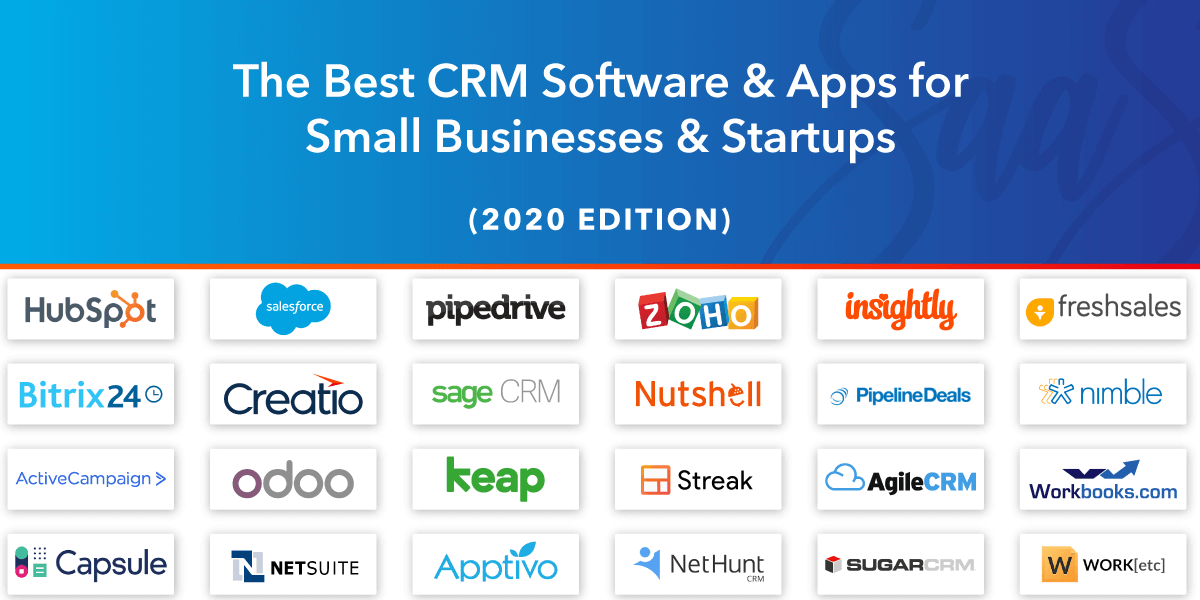In today’s competitive business landscape, implementing a top CRM (Customer Relationship Management) software has become essential for organizations seeking to streamline operations, enhance customer engagement, and drive growth. This comprehensive guide delves into the intricacies of CRM systems, empowering businesses with the knowledge and insights necessary to select and effectively utilize the best CRM solution for their unique needs.
CRM software offers a myriad of benefits, including centralized customer data management, automated workflows, improved sales performance, enhanced customer service, and data-driven decision-making. By leveraging the power of CRM, businesses can gain a holistic view of their customer interactions, fostering stronger relationships and driving business success.
Comparison of Top CRM Software Providers
Customer relationship management (CRM) software is an essential tool for businesses of all sizes. It helps companies manage their interactions with customers, track sales leads, and provide customer support. There are many different CRM software providers on the market, each with its own strengths and weaknesses.
To help you choose the right CRM for your business, we’ve put together a comparison of the top providers.
Features
The features offered by CRM software can vary widely. Some of the most common features include:
- Contact management
- Sales lead tracking
- Customer support
- Marketing automation
- Reporting and analytics
The specific features that you need will depend on the size and needs of your business. If you’re a small business, you may only need a basic CRM system with contact management and sales lead tracking. If you’re a larger business, you may need a more comprehensive system with features like marketing automation and reporting and analytics.
Pricing, Top crm
The pricing of CRM software can also vary widely. Some CRM systems are available for free, while others can cost thousands of dollars per month. The price of a CRM system will typically depend on the number of users, the features included, and the level of support provided.
When choosing a CRM system, it’s important to consider your budget and the features that you need. If you’re on a tight budget, there are several free and low-cost CRM systems available. If you need a more comprehensive system, you may need to pay a higher price.
Customer Reviews
Customer reviews can be a helpful way to learn more about the different CRM software providers. When reading customer reviews, it’s important to keep in mind that everyone’s experience is different. Some people may have had a positive experience with a particular CRM system, while others may have had a negative experience.
It’s important to read a variety of reviews to get a balanced view of the different CRM systems.
Implementation and Best Practices for CRM Software

Implementing a CRM system successfully involves careful planning, execution, and ongoing optimization. It is crucial to establish clear goals, define processes, and involve stakeholders throughout the implementation process.To get the most out of your CRM system, consider the following tips:
- Customize the system to align with your specific business needs.
- Train users thoroughly to ensure they understand the system’s capabilities.
- Monitor usage and gather feedback to identify areas for improvement.
Common challenges in CRM implementation include:
- Data migration and integration with existing systems.
- User adoption and resistance to change.
- Ensuring data accuracy and consistency.
To overcome these challenges, it is important to:
- Plan and execute a comprehensive data migration strategy.
- Communicate the benefits of the CRM system to users and provide ongoing support.
- Establish clear data governance policies and procedures.
Trends and Future of CRM Software: Top Crm
The CRM software market is constantly evolving, with new trends emerging all the time. These trends are being driven by the changing needs of businesses, as well as the advancements in technology.
One of the most significant trends in CRM software is the move towards cloud-based solutions. Cloud-based CRM software is more affordable and easier to use than on-premises solutions, and it can be accessed from anywhere with an internet connection.
Another major trend is the increasing use of artificial intelligence (AI) in CRM software. AI can be used to automate tasks, such as lead scoring and customer segmentation, and it can also provide insights into customer behavior.
Future of CRM Software
The future of CRM software is bright. As businesses become more reliant on data to make decisions, CRM software will become even more essential.
Some of the key trends that we can expect to see in the future of CRM software include:
- Increased use of AI and machine learning
- Greater integration with other business systems
- More personalized and tailored experiences for customers
- Continued growth in the cloud-based CRM market
Impact on Businesses
The adoption of CRM software can have a significant impact on businesses. CRM software can help businesses to:
- Improve customer relationships
- Increase sales and marketing efficiency
- Gain insights into customer behavior
- Make better decisions
CRM software is an essential tool for businesses of all sizes. By investing in CRM software, businesses can improve their customer relationships, increase their sales and marketing efficiency, and make better decisions.
Final Wrap-Up
As the future of CRM software continues to evolve, businesses must stay abreast of emerging trends and technological advancements. By embracing innovation and adapting to the changing landscape, organizations can harness the full potential of CRM systems to achieve operational excellence, drive customer satisfaction, and ultimately gain a competitive edge in the digital age.
